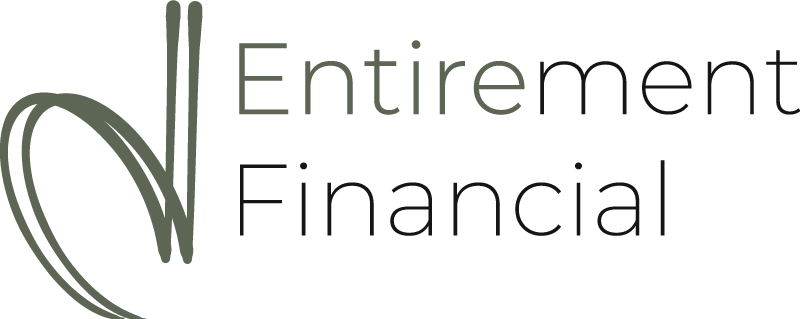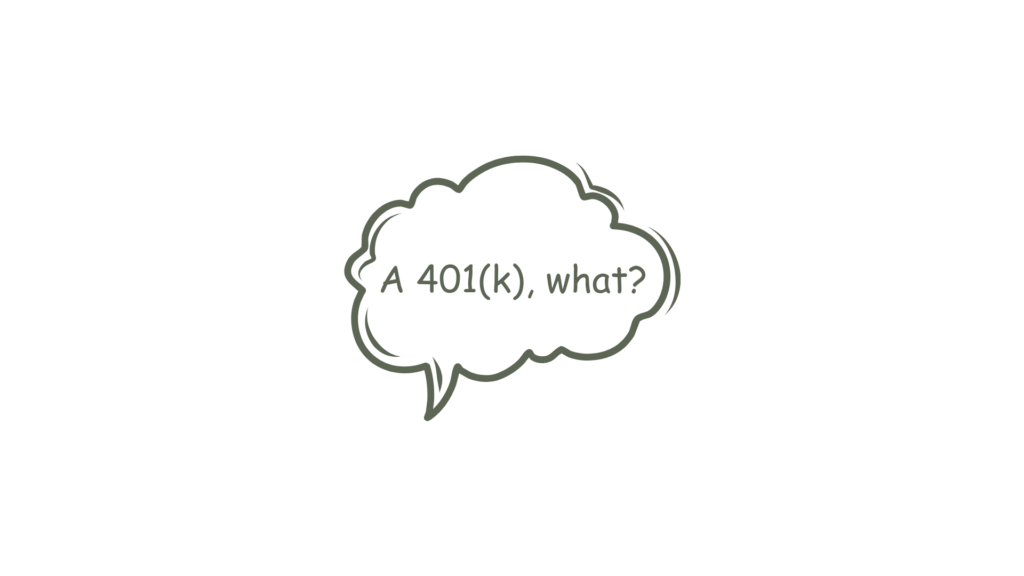Today we are jumping into all things 401(k)-well maybe not all things since that’d probably be an entire day read. So we will keep it simple and take note of the worthy points.
- What is a 401(k) plan?
- Some pros (in our opinion)
- Some cons (in our opinion)
- Story Time
What is a 401(k) plan?
It’s an employer sponsored retirement plan where it allows employees to contribute a portion of their income into their own 401(k) account. Your own 401(k) plan means that your name is directly tied to the account. This is different from the pension plans of years past…most of us aren’t lucky enough to have one of those anymore. The name 401(k) is after the section from the Internal Revenue Code. There are different types of 401(k) plans that employers can choose from. Today we will focus on the traditional 401(k) plan that you often see.
The pros/positives/the high fives (in our opinion)-
First and foremost you get to contribute your decided amount into your 401(k) plan-with a limit of course! Your contributions are deferrals from your income and are always 100% vested immediately. This just means that if you left your employer the next day the money you contributed is still yours in your 401(k) account. You are in control of the management of your 401(k) or another way to put it, is that you have the responsibility to invest your money. Don’t get overly pumped as most of the time you are still beholden to the investment options your employer plan allows, and well let’s just say they ALL aren’t great. There are limits to the amount of money you can contribute to your 401(k) plan. The good news is you have control on how much or how little you put in. And in most plans you are able to change that amount often. Another positive is, if you have 50+ years of living on this earth you are rewarded with a catch-up contribution each year-experience pays off!
Positively exciting is the tax advantages, ehh it may not be super exciting for everyone. You may be asking yourself, why don’t I just keep all of my income and go save money somewhere else? Good question. One advantage (again depends on your situation) is your contributions to your traditional 401(k) are not taxed as income for federal income tax purposes, so that’s a nice treat. Again, don’t let your excitement get away from you as the income is still subject to Social Security, Medicare, and federal unemployment taxes. But, back to the positives, you essentially are reducing your taxable income now, and deferring the tax on those wages to a later time. Now, let’s say you are in a fairly high income tax bracket, and you expect your income tax bracket to be lower when you take your money out (in retirement), then deferring those taxes could be advantageous-high five for that!
One more high five-you typically will have a matching contribution from your employer. Yes that’s good icing on the cake as it is additional money! Each employer is different in their matching so you have to pay attention to the details. Please make sure you are contributing enough to receive the match as you are forfeiting hard earned money if you do not. Now remember how I said there are different plans? This comes into play here as each employer plan will have a different vesting schedule for their lovely matching contributions. So pay attention to the details again, or don’t and let us handle that for you.
The cons/negatives/no high fives (in our opinion)-
Being able to contribute is a big positive; however, the shortfall is there are limits. Each year the new limits are given and the limit could be a pretty small percentage of your overall compensation. If you are a good saver, it may leave you with a gap on where to save more (super easy con to fix by the way). Another, is you have control of how much you’re putting away for YOUR retirement. In other words it is up to you to have the discipline to set money aside for yourself. Your employer is not going to force you as they do not necessarily care what your retirement looks like. Do not panic if you have not set this up yet; that’s why we are here, to help you get comfortable with whatever amount helps get you to your vision.
The not so exciting stuff, taxes. Now we know we just got done telling you how the tax deferment is a positively exciting advantage. We didn’t lie, it’s just that it may not be advantageous for everyone. Let us look at a simple example. Say you are contributing $1,000 of your income into your 401(k) plan and your overall income tax rate is 5% (these are made up numbers for simplicity sake). If you had not saved that money into your 401(k) you would have paid $50 in tax (again, real life is not this simple). Now let’s say when you retire and decide to take that $1,000 out of your 401(k) your overall income tax rate is 20%- you now have to pay $200 in tax. In this scenario it would not have been advantageous to defer that income. Don’t go freaking out on us, there are so many other factors to take into consideration before you stop 401(k) contributions. This is just to get you thinking that your 401(k) plan is technically yours; however, there is a chunk of it that will go to tax (ie. isn’t yours anymore).
Some more not so exciting stuff- taxes on withdrawals. Not paying tax on that deferral income feels so so good, until you take it out and have to pay tax on it. Then it doesn’t feel as nice. Withdrawals from your 401(k) will be taxed unless it’s a qualified rollover (topic for another day). That means all the contributions, gains, and interest you may have earned are going to be taxed as well, when you take it out. Another downside is you should wait until 59 ½ at least before you take withdrawals. Generally if you take it prior to that age, you will pay a penalty in addition to the income tax.
Now for the no five! You remember the employer match, and how nice it is to have that. Well there could be a vesting schedule, meaning you have to stay working there for a certain amount of time before it’s truly your money. Let’s put it another way. If you left the company before the vesting period is complete you forfeit their employer matching contributions. Still, not a reason to not contribute to your 401(k); however, gets you thinking about that job move and timing.
Now that we have the basics down let’s look at a story.
Yogi started working with us a few years back. When we sat down with Yogi he was contributing 4% to his 401(k). We asked why he chose the 4%, in which he said that his employer would match 100% of his contributions up to 4%. Great job, Yogi, right? Well, after reading through his benefits plan we found his employer is a rare company and matches dollar for dollar …..meaning they will match 100% of his contributions! What a find! He said he heard the 4% when he first started and never thought anything of it. This is not extremely common where the gap is so large; however, we do see that most people save into their 401(k) whatever they hear is a good amount and will go years without double checking if that is still appropriate for their financial goals. We are here to help take that research off your plate and confirm you are doing the right thing, for you and your family.

